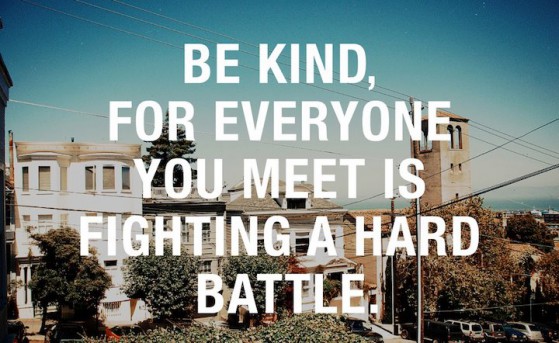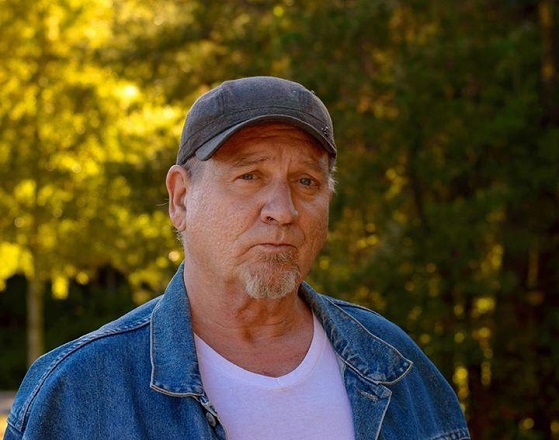How Life Allowed Me To Learn What True Service Is.
True or selfless service is a virtue in principle and practice that most of the world’s great religious and spiritual traditions recommend and aspire to. Let me tell you how Life allowed me to learn about this concept and put it into practice.
About six years ago, after returning from an extraordinary travel in India where I went to research a book I was writing, I returned home to find my 86-year-old mother struggling to cope with the onset of Alzheimer’s. As she felt control of her life slipping away, she expressed to me that her biggest fear — which would turn out to be justified — was that she would be removed from her home and placed in a permanent long-term care-facility. I assured her that I would take care of her in her home and that under no circumstances would I allow her to be taken from it. I did that for the next two years.
Taking care of someone in your own family, especially a parent, is not like taking care of a friend or a stranger. As they inevitably become increasingly dependent on you, a profound and difficult — psychological and emotional — adjustment takes place. You become like a parent to them, taking on the role of their protector and nurturer.
Only a parent nurtures a child into more life and there’s a reward for them in the end; you, on the other hand, are on a daily tilt-a-whirl ride with life and death that abruptly ends one day with them leaving you and this world…
Therefore, there’s no way to taper off on your feelings and prepare for the loss. Not if you are committed to being there with them until their final breath. So when it happens, when those last chortling breaths cease, the loss you feel is not the usual one, nor is the grief you experience normal grief.
For reasons I don’t want to rehash here (but which I go into detail in my book, An Odyssey in the Great American Safety Net) I was soon unceremoniously evicted from the home where I was living while taking care of my mother. Let’s just say, to be kind, that it was done by an insensitive sibling who was the executor of my mother’s estate as well as an aggressively successful real-estate agent who wanted the house on the market as soon as possible.
Two years earlier, this very same sibling had taken me to court in order to have our mother placed with professional caregivers in an assisted living facility. That I had to help my mother fend off Alzheimer’s, while at the same time fight in court to protect her right to remain in her home was not only grossly unfair, but caused me to experience severe and lasting emotional and mental stress.
During the time that remained for me to stay in my home — a few months — I sank into a deep funk. A close friend who was calling me regularly noticed the change in my condition and advised me to go a hospital. I reluctantly forced myself to get out of the house and check into an emergency room. There, I was diagnosed with an acute stress/anxiety disorder that was causing me to feel a general sense of anxiety and gloom. The treatment I received was a few days worth of anti-anxiety meds and the phone number of a public mental health facility that didn’t have an appointment available for another three months.
Once I was finally legally evicted, and rendered homeless, the state stepped in and placed me in a one-room motel room where I assumed that I was supposed to languor until I expired from despair and ennui.
As I lay on top of the bed (during the six weeks I would be in the motel room, I never once opened the bed and actually got in it) I stared up at the cigarette and crack-smoke-stained ceiling, and thought to myself: Lord, God, Life, Anything, I’m not getting out of here with my life or sanity intact without some help.
I was no more capable of getting through the situation I was in on my own, than my mother would have been able to cope with Alzheimer’s by herself.
Help did not come immediately, but it came. Within the next three months I would meet a handful of the most extraordinary, selfless, and I would say saintly people I have ever encountered. I didn’t know any of them before this ignominy befell me, and yet they unquestioningly helped me find permanent housing, furniture, food — and for the first time in longer than I could remember, feel a sense of security and hope.
When an experience like this happens to you — and you’ve taken the necessary time to recover and restore yourself — you find yourself in a state of profound gratitude to those who helped you, along with a strong desire to want to reciprocate for the help you received by being of service to others.
Doing so is not as easy as one might think, which brings us back to the question of What is true service?
Since recovering from my experience, I worked as a volunteer in juvenile detention centers, where I did my best to encourage (young Rebelles) to write boldly, creatively and authentically about themselves and their lives before society stepped in and labeled them indelibly as the result of whatever incident got them in trouble. And I also worked for a church-based charity, providing counseling to individuals and families in crisis — based on my experience.
Neither of these activities, and others similar to them, satisfied my desire to return the kind of true service I received. One can debate whether these kinds of institutions and organizations are well-intentioned or not, but the bottom-line for me is that they share an agenda, for different reasons, to produce remorseful, overly self-conscious, God-fearing and self-loathing conformists.
I want no part in it.
The kind of service that sticks out in my mind, and what defines true selfless service for me, is the kind that was provided for me when I really needed it. The people who helped me at that time never once asked me how I got into the situation I was in, nor did they proffer any unsolicited advice. Their attitude was: You need help; how can we help you? No more, no less.
You don’t know what a relief that is when you are in a situation like I was. You are truly too overwhelmed by your circumstances to understand what’s going on. You are living it, hoping you will survive it, and, perhaps someday sort it all out. As I described it in the book I wrote about my experience:
“What good would it do you to be able to name the make and model of the bus that just ran you over?”
So that has become my model for true service, and I continue to look for ways to apply it to my life.
One of the persons who helped me out the most when I was in need, ministers an outreach to the homeless in the community where I live. By and large, these are not people who want to change how or where they are living; not do they want any counseling or advice — psychological, spiritual, or otherwise. They want to be able to come to some place where they know they will be treated with kindness, respect and dignity.
Lately I’ve been volunteering to help set up the outreach, which twice a month provides free clothing, food, a home-cooked meal and medical checkups for those who want them.
On outreach day, sometimes I show up for a home-cooked meal. I don’t need to tell anyone there my story, nor do I need to hear theirs. We are all here, rather than not here, as a result of the same Grace. We share relieved grins and laugh a lot.
Service.
[youtube]-QVKRJyzb1Y[/youtube]


